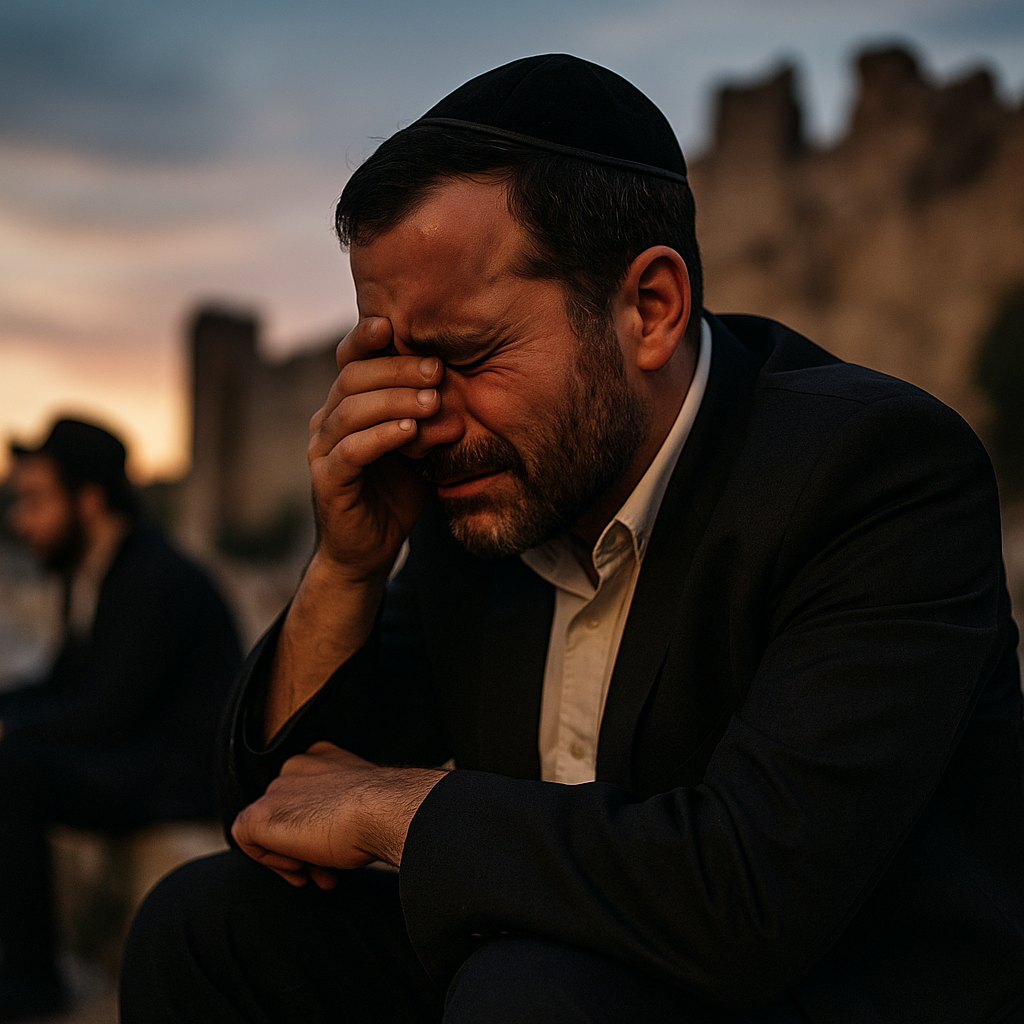Tisha B’av is almost here and we are grieving. Collectively grieving the loss of the Beis Hamikdash, our connection to the Shechina, and the wholeness we once knew. Grieving the hostages still unreturned, the loss of life and innocence, the loss of clarity and hope. The grief is both collective and personal, as we mourn the national losses as well as the individual tzaros that plague each heart.
Every human being will likely have a major loss in their life and grieve, and yet it can be a profoundly lonely and isolating experience as each person experiences grief in an entirely unique way. Many don’t know how to support a loved one who is grieving. Nearly half of people state that relationships in their life changed after a significant loss.
Our grief is not always recognized by others. Grief researcher and author, David Kessler, uses the terms “disenfranchised grief” to refer to grief that is not openly acknowledged, socially supported or publicly mourned. These can include pregnancy loss, infertility, divorce, estrangement, loss of independence, identity and dreams.
Anticipatory grief is also a powerful and often misunderstood form of grief. It is the grief we feel before a loss occurs, when we are expecting or dreading it. This can often happen to the loved ones of terminally ill individuals, or when watching a parent decline with dementia. There can be guilt or shame about “grieving too early” and difficulty being present with the loved one. It’s the sorrow of watching the beginning of the end.
Grieving is an intensely individual experience with no right or normal way to grieve. Waves of sadness, anger, guilt, numbness, anxiety and even relief at times, can come crashing down in waves. Difficulty concentrating, mental fog, fatigue, sleep and appetite disturbances are all common features of grief. Grieving individuals may withdraw from family or friends, or overinvolve themselves in activity or work to avoid feelings.
Supporting someone who is grieving can feel confusing, especially as different people may need different things. Just being present, listening and available is often more comforting than anything you can say. Validate their emotions and don’t redirect the conversation to your own experiences of feelings unless asked. Show up and check in even after others have stopped. Respect individual grief styles.
About ten to twenty percent of grieving individuals develop prolonged grief disorder, formerly known as complicated grief. Added to the DSM in 2022, PGD is diagnosed when grief doesn’t ease over time and begins to interfere with daily functioning even long after the loss. It is chronic, intense and disabling, and symptoms such as difficulty functioning, avoidance of reminders of loss, depression or numbness, preoccupation and intense yearning, need to be present for at least twelve months after the loss (six for children and adolescents.) PGD is more likely after a sudden or traumatic death, loss of a child or spouse, lack of community or religious support and pre-existing anxiety or depression.
Grief is love that has nowhere to go. It is the echo of a relationship that once filled time and space. It is not a sign of weakness or lack of Emuna- it is the price we pay for connection. Tisha B’av is excruciating, but it ends with the seeds of redemption. Nachamu, nachamu ami.
Chayi Hanfling is a licensed clinical social worker who is experienced and passionate in helping individuals, families, and couples. She specializes in couples counseling, EFT, women’s health, anxiety management, OCD, trauma, and other mental health challenges. She can be reached at https://chaicounseling.org or [email protected]











